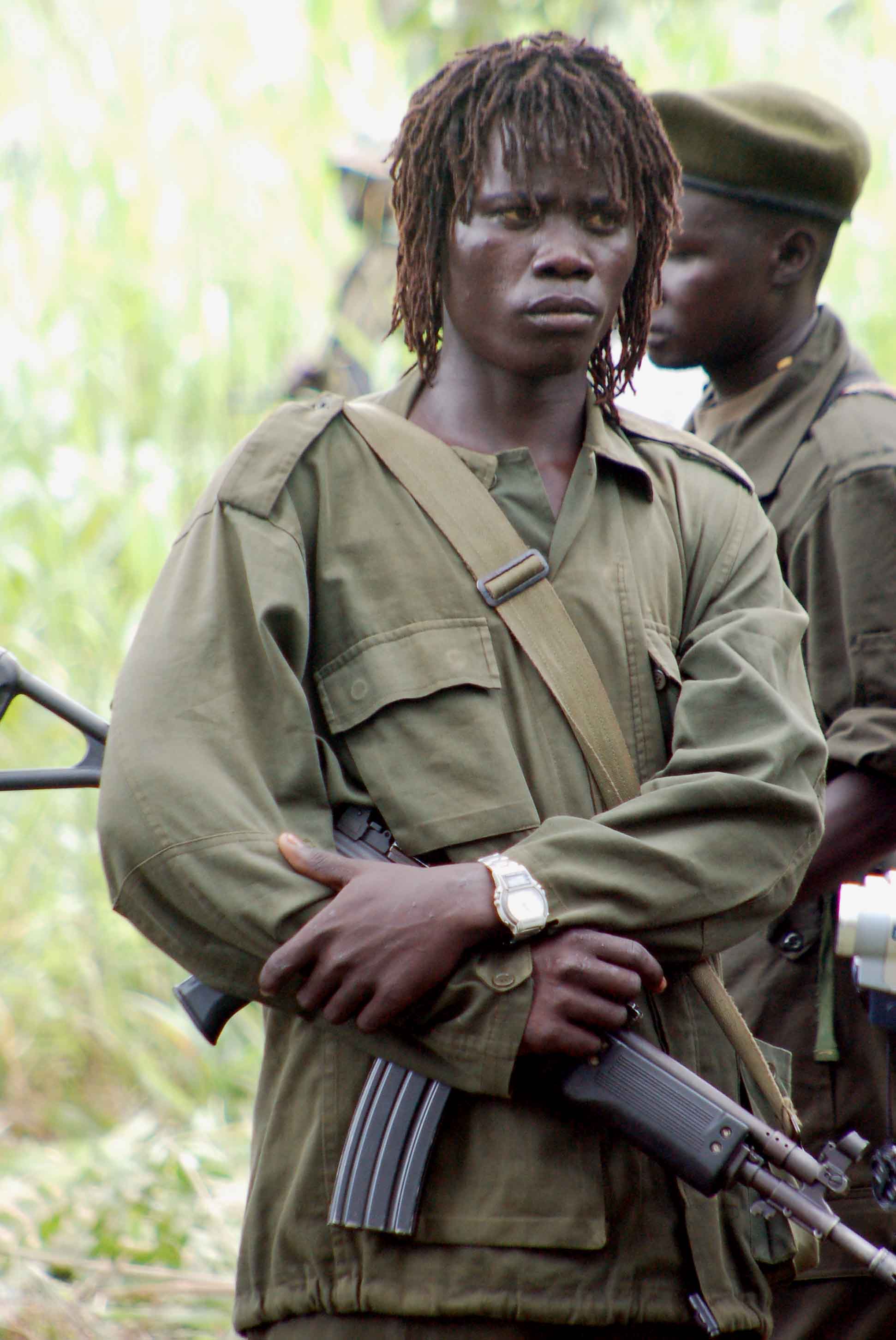
This post co-authored with Sarah Margon, associate director for Sustainable Security at the Center for American Progress, originally appeared on Think Progress.
Although the initial media reaction to President Obama’s announcement that he was deploying “a small number of combat-equipped U.S. forces…to central Africa to provide assistance to regional forces working toward the removal of Joseph Kony from the battlefield” was one of shock, in fact there’s a strategic method to all this madness.
Joseph Kony is the leader of the Lord’s Resistance Army, or LRA, a vicious rebel group originally based in northern Uganda that now operates in the often lawless and ungoverned expanses of eastern Congo, the Central African Republic, and South Sudan. The LRA has a long, sordid history as one of the most brutal guerrilla groups on the planet, and it has abducted thousands of civilians to serve as child soldiers, porters, and concubines. Although Kony, and other senior LRA leaders, have been indicted by the International Criminal Court, they remain at large and continue their ruthless reign of terror.
The deployment of U.S. military advisers is certainly not going to solve the LRA problem but it will make an important contribution. Military solutions can’t suffice when it comes to ending wars, conflicts or other kinds of kinetic operations, but there are instances when certain kinds of military engagement can play a constructive role — especially when combined with other critical elements like enhanced diplomatic engagement, scaled up development, and better intelligence sharing. Indeed, this most recent move by the Obama administration is part of a wider and more comprehensive strategy focusing on the range of action that can be taken — by the U.S. and by our partners to bring the LRA to an end. It is also an indication of a growing global commitment to the goal of civilian protection.
The deployment of these advisers will help fill some remarkable gaps that enable the LRA to continuing committing horrific atrocities in remote areas throughout already difficult terrain. Armed with high-tech communications equipment, U.S. military advisers will be able to keep in regular touch with headquarters and ensure the right intelligence gets into the hands of those who need it most. This will help generate a quicker response to LRA attacks on civilian populations, encourage greater and more effective collaboration between regional militaries, and hold these militaries to a higher civilian protection standard.
The regional militaries involved in LRA operations — primarily Uganda, with some assistance from Congo and South Sudan — suffer from a lack of technical capacity and insufficient resources. If we’re honest, they have also suffered from discipline problems — which makes partnering with them tricky business, a dilemma of which the administration is well aware.
Importantly, the military component is part of a larger and more comprehensive plan — the initial push for which is rooted in the Lord’s Resistance Army Disarmament and Northern Uganda Recovery Act of 2009, which was signed into law in 2011. Underpinning this strategy, laid out in this 2010 report by White House, is increasing opportunities for civilian protection throughout the region — the very essence of what local communities need and have repeatedly asked for. But other prongs include encouraging and facilitating defections from rank and file LRA, building cell phone towers to enhance communication and information sharing, and providing ongoing humanitarian and development relief to affected areas.
Another missing element needed for a fully successful strategy includes helping to develop more capable and disciplined regional forces that are bolstered by greater intelligence and logistical capacity. Additionally, the U.S. should ramp up its diplomatic efforts to get regional governments and institutions, including the African Union, to cooperate more effectively.
After the LRA abandoned peace talks in 2007, it became obvious that negotiations alone would not end the scourge the rebel group. If we’re going to see the LRA disbanded, the child soldiers go home, and the affected areas return to at least some level of normalcy, the military component is an important part — one part — of a larger strategy. The affected populations of central Africa have suffered far too long; they deserve an opportunity to return to their homes and rebuild their lives. Shouldn’t we employ a full range of options to help them do so?
Photo: An LRA fighter in South Sudan (Enough/Matt Brown)

